
This course brings opera into the classroom: ‘Many themes are still relevant today’
Honours Challenge
What can opera tell us about societies in the past and present? Leiden honours students went looking for an answer, together with students from the Dutch National Opera Academy. A final concert was, of course, part of the repertoire.
A Master Honours Challenge on Politics, Opera and Philosophy: how does one come up with that? 'I'm a huge opera fan myself,' Tim Meijers, lecturer in philosophy at Leiden University, confesses. 'I saw that opera involves a lot of questions related to politics and philosophy. So I thought: shouldn't I explore that overlap?'
That this exploration would result in a brand-new course, far exceeded Meijers’ expectations. 'I thought: this must be too ambitious. Is anyone interested in a course like this? But every time I talked to people, I was surprised by their enthusiasm. From the conservatory, the National Opera and, in the end, the students.'
A chance collaboration
For this first edition of the honours challenge, Meijers can count on 25 master's students from a variety of programmes – just right for a small-scale, interdisciplinary course. Participants visit a dress rehearsal, dive into opera scripts and attend guest lectures from composers, dramaturges, directors, critics and conductors in the field. All the while, they are also joined by master's students from the Dutch National Opera Academy (DNOA).
-
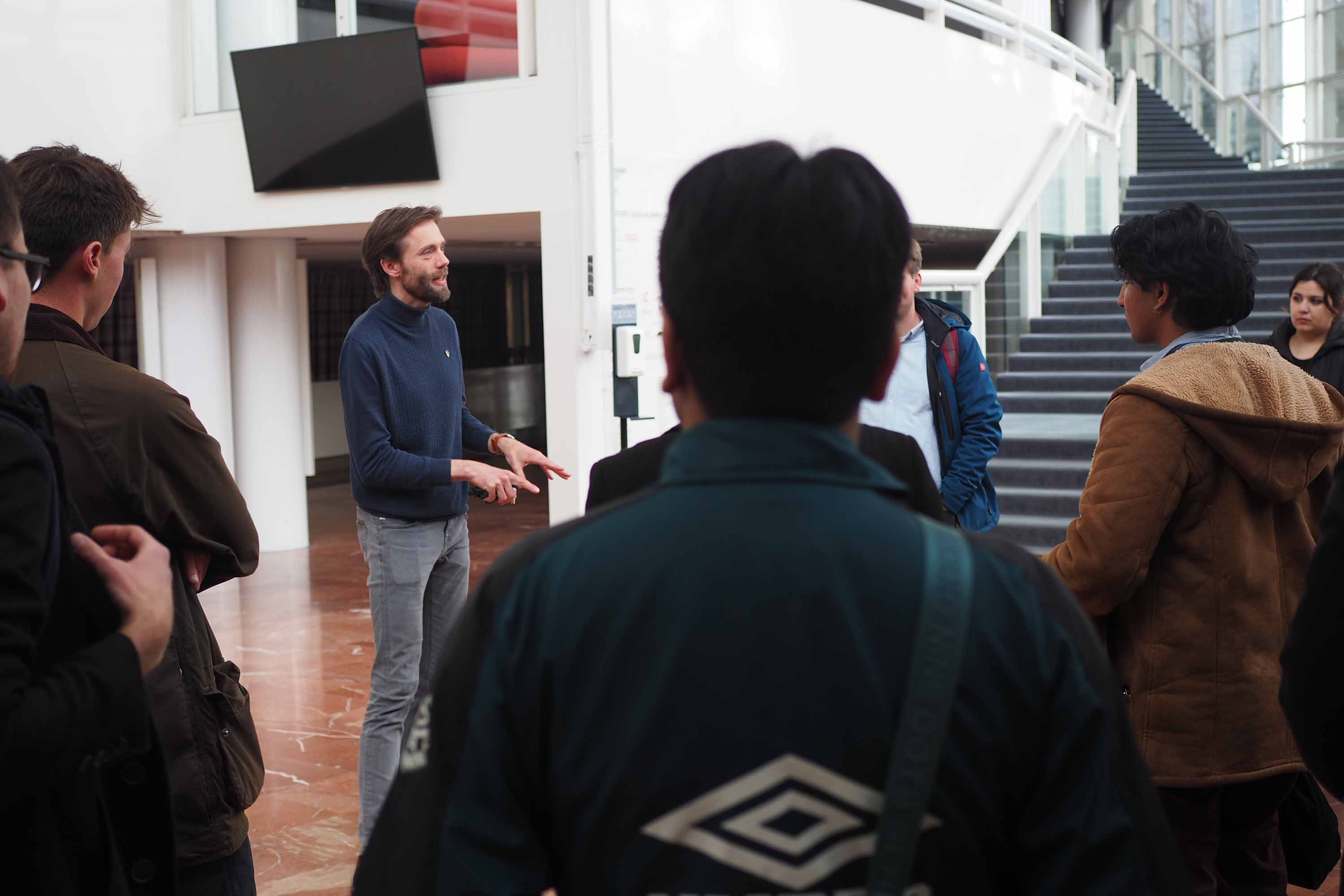
Students welcomed by the National Opera for the dress rehearsal of “Frau Ohne Schatten”. -
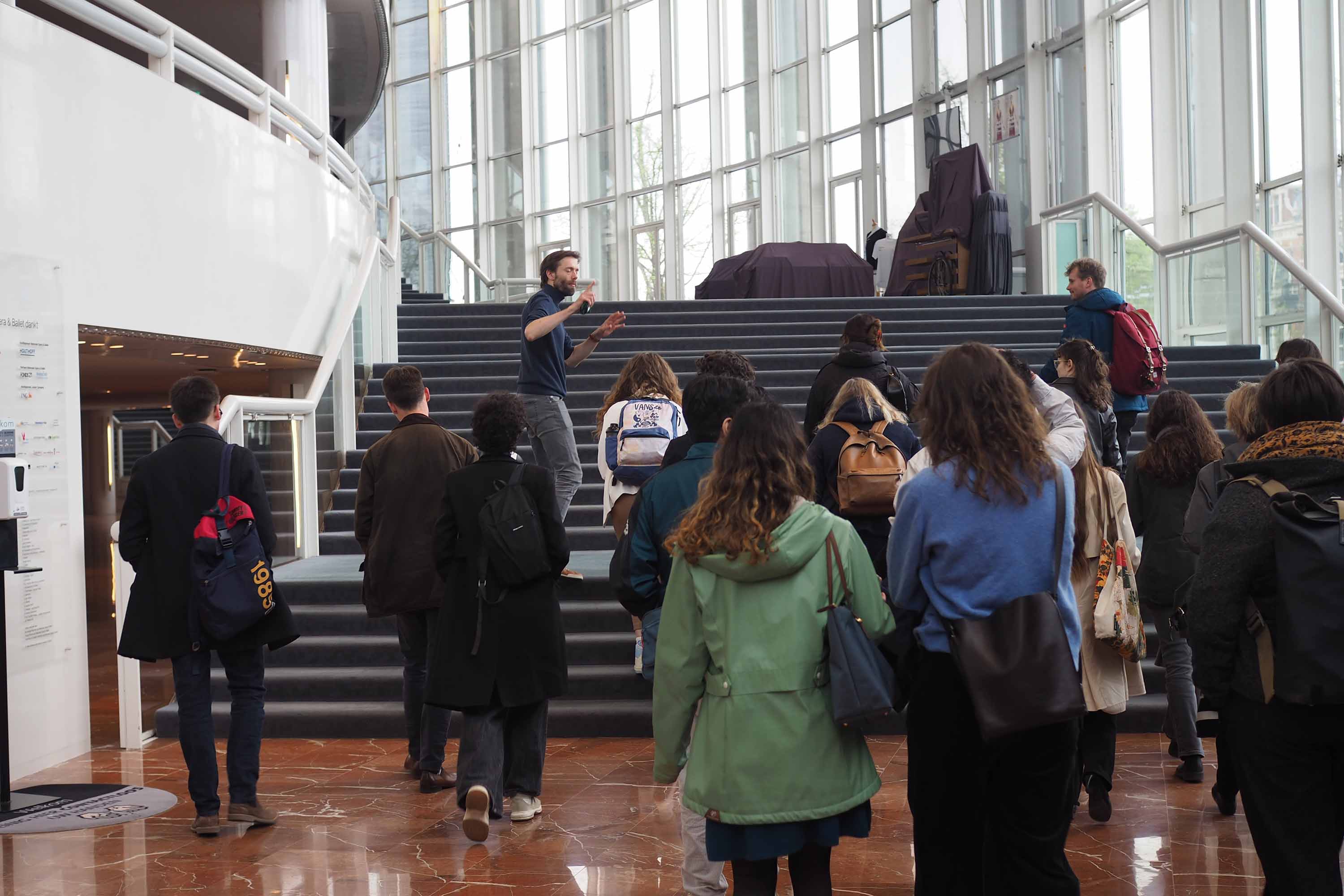
Students welcomed by the National Opera for the dress rehearsal of “Frau Ohne Schatten”. -
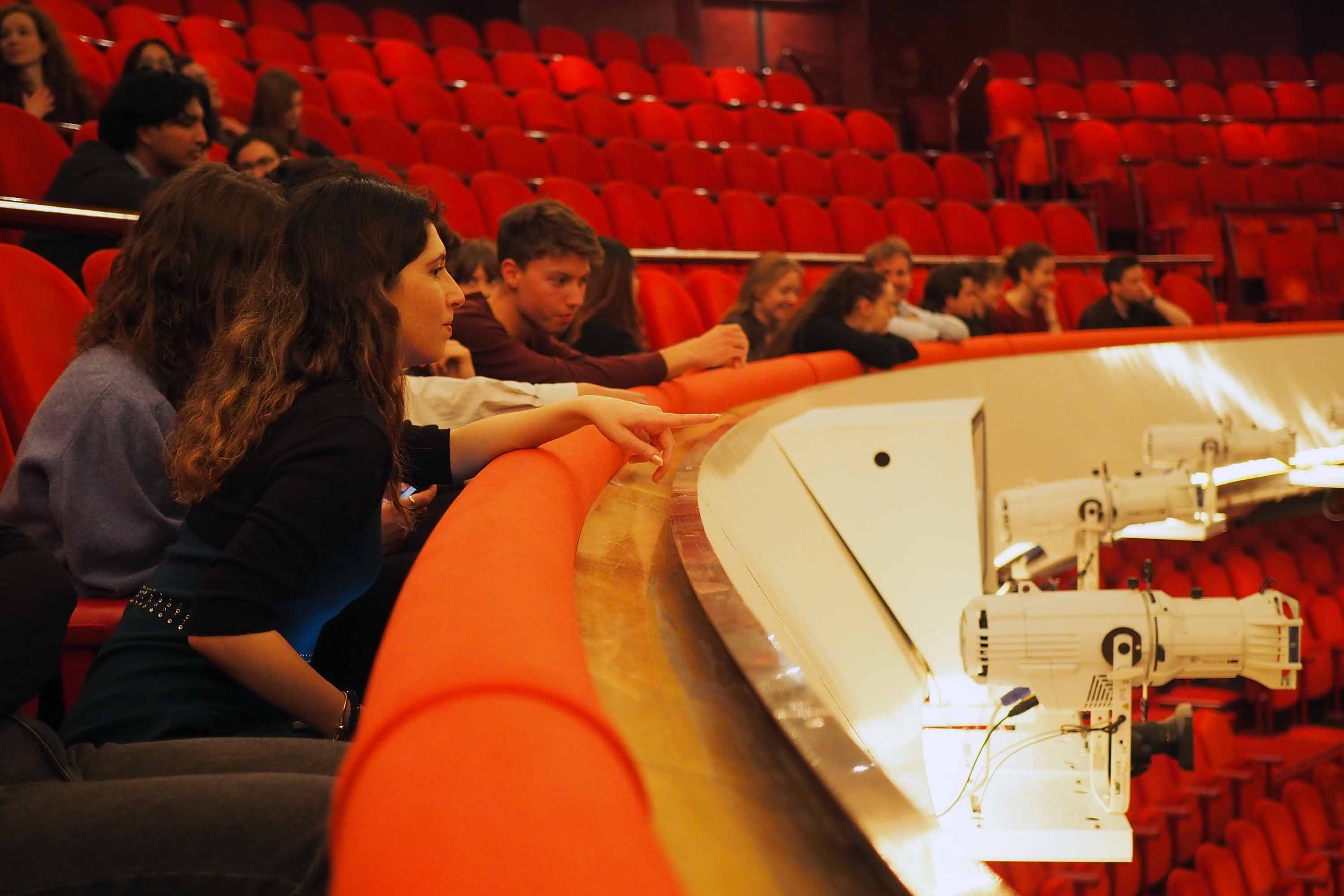
Students welcomed by the National Opera for the dress rehearsal of “Frau Ohne Schatten”. -
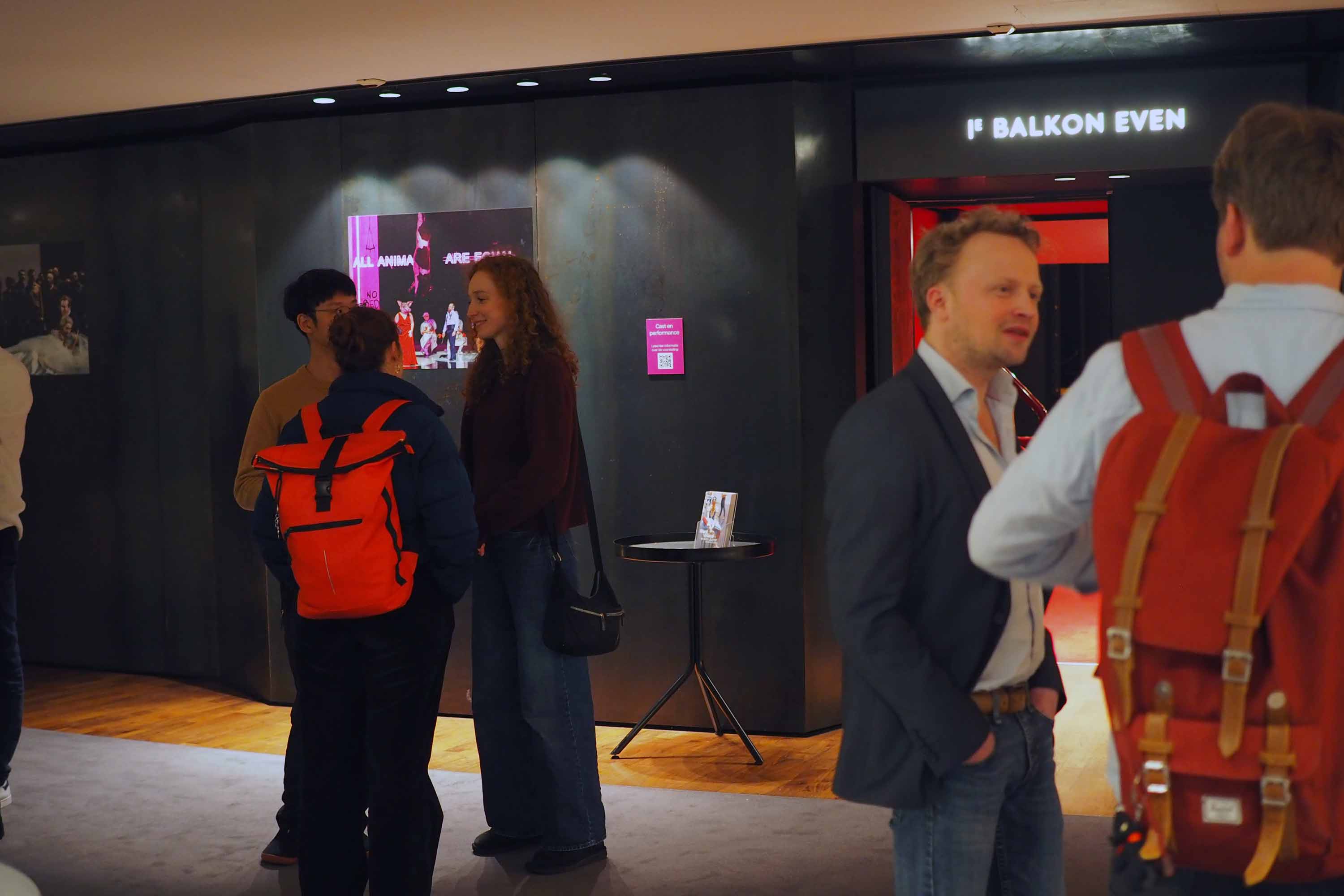
Students welcomed by the National Opera for the dress rehearsal of “Frau Ohne Schatten”.
Meijers: ‘That’s the most special thing about this course. As a student from Leiden, you look at art in an academic way, with professional singers. And start making art yourself.' How did this came about? 'I asked the artistic director of the DNOA, Paul McNamara: can your students come and sing? Yes, they could, but then they should join the entire course!'
‘Do you just throw it in the trash?’
The classes are about Politics, Opera and Philosophy. But what makes opera politically interesting? Meijers: 'Operas were composed at a time when music and politics were very much intertwined. They were often about ideals, such as equality, freedom, legitimacy.' Le Nozze di Figaro (1786), for instance, centres around the power imbalance between middle classes and nobility.
'Can it show us something about the way the world works?'
Sometimes, Meijers continues, the political hides precisely in what opera does not show: in the censorship of the times. 'In Rigoletto (1851) the Duke of Mantua sleeps with all kinds of women. Of course, that was actually about a king, but a duke was less sensitive.'
Political sensitivity also pops up when one tries to translate centuries-old opera to the present. For instance, how to deal with racial stereotypes? Meijers: 'Sometimes it's super problematic, but then you go and listen to the music and think: wow! Do you just throw the whole thing in the trash? Or are there fascinating questions in there that make us think? Can it show us something about the way the world works? And if so, how?'
-
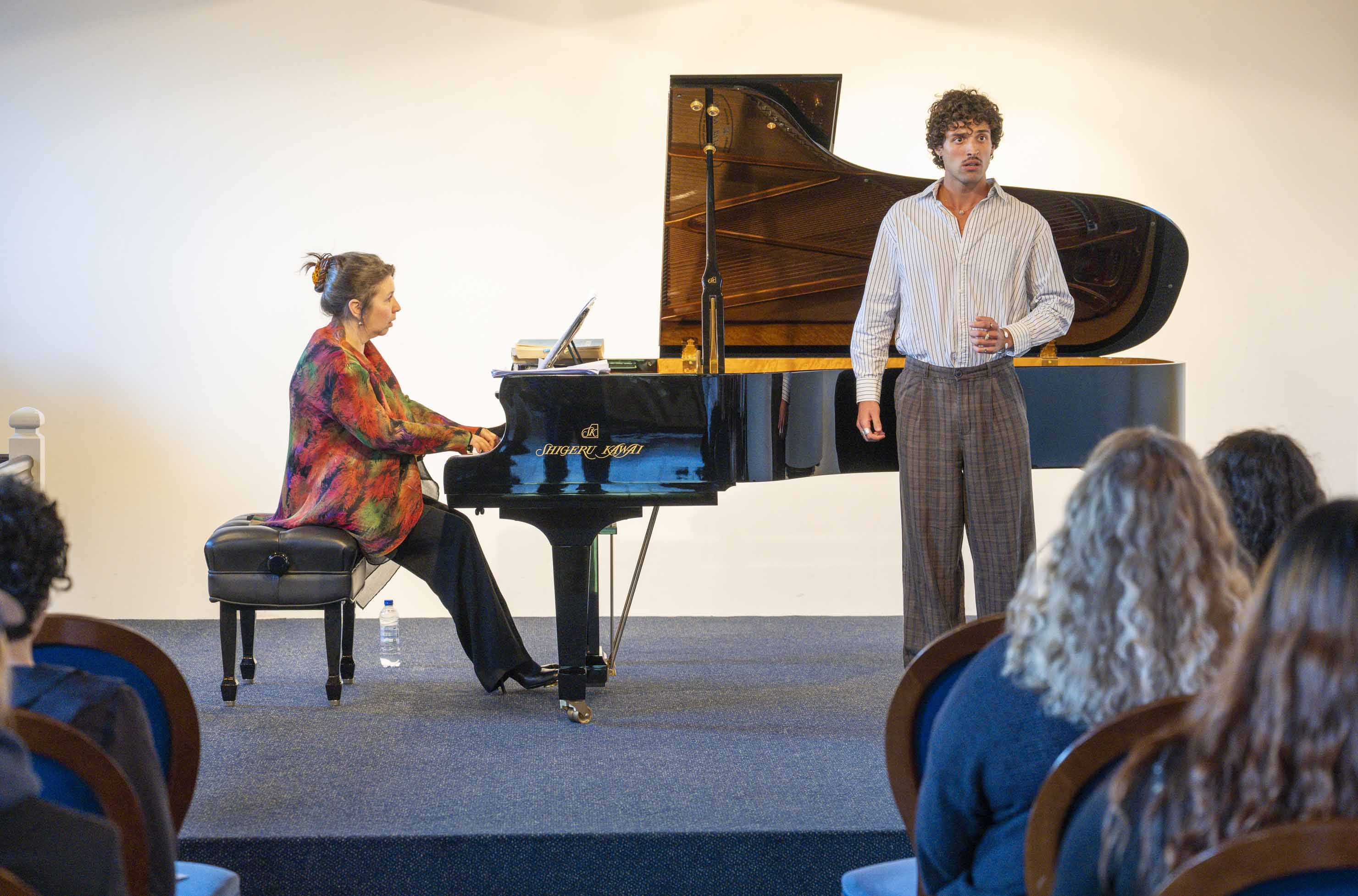
Opera students performing at the final concert. Photo: Buro JP -
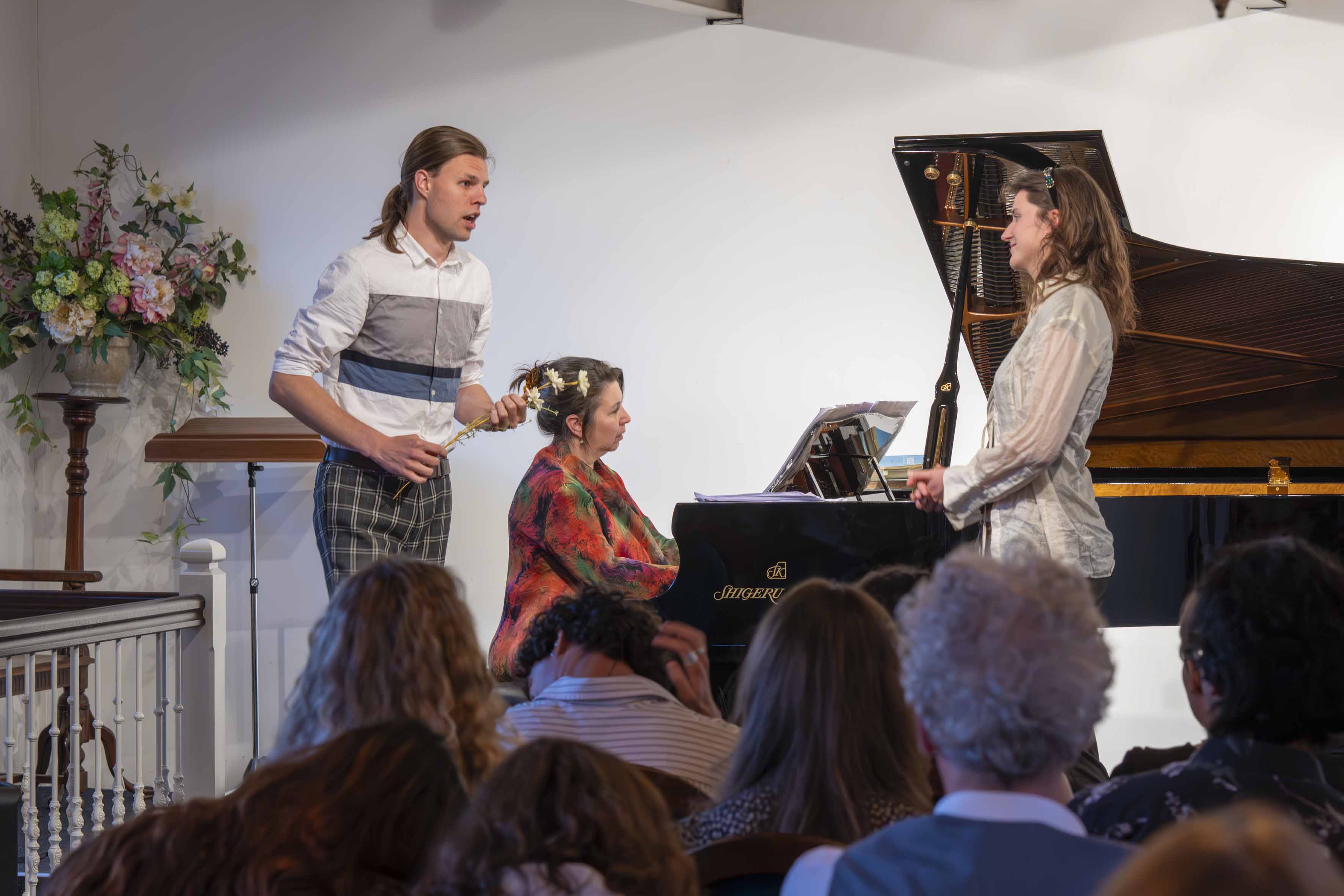
Opera students performing at the final concert. Photo: Buro JP -
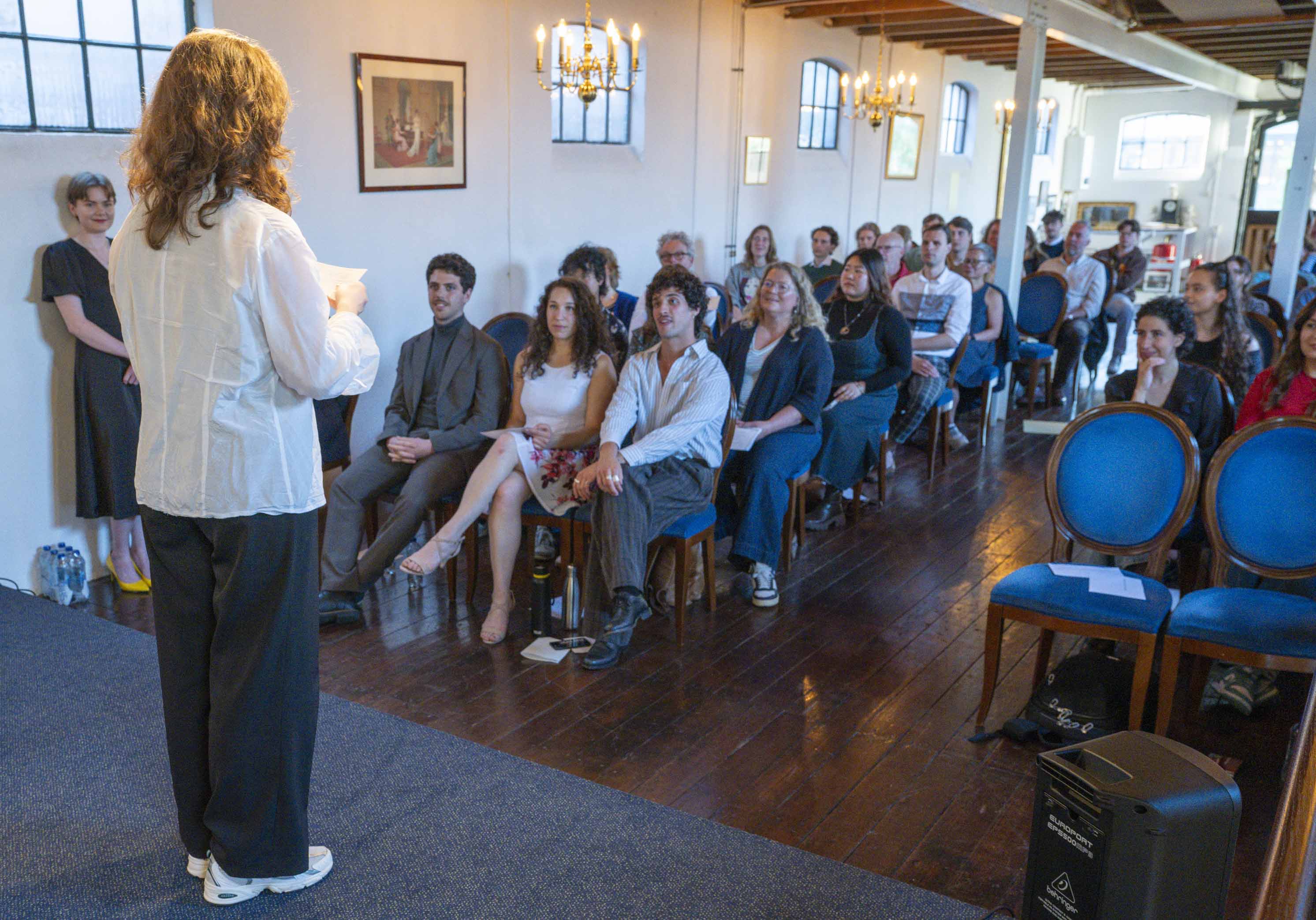
Opera students performing at the final concert. Photo: Buro JP -
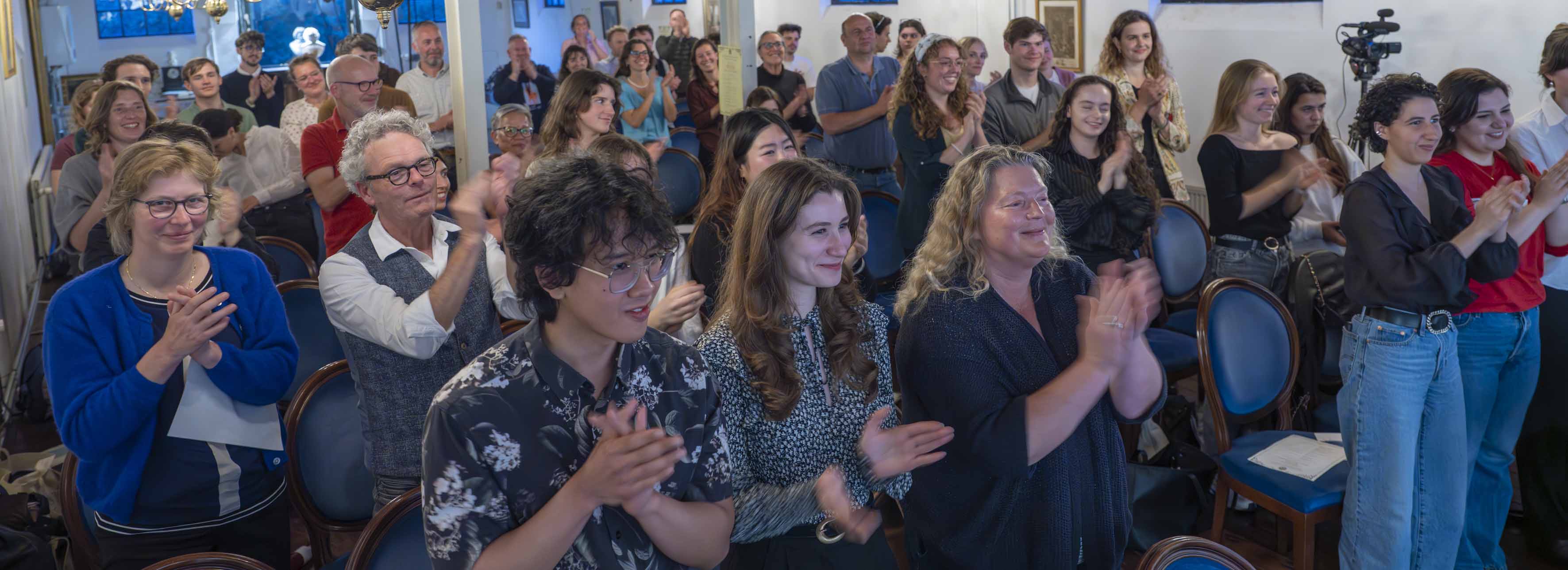
Opera students performing at the final concert. Photo: Buro JP -
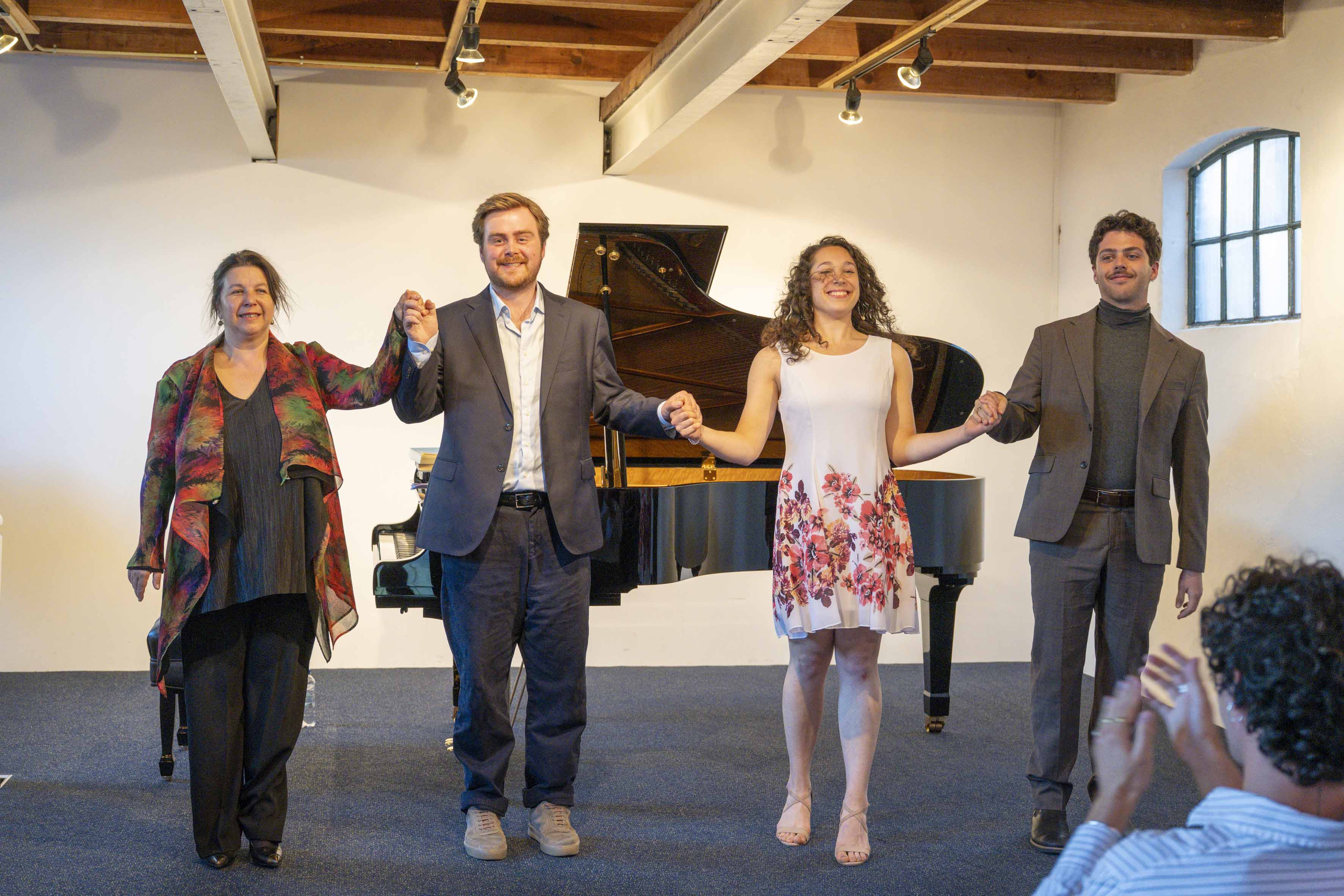
Opera students performing at the final concert. Photo: Buro JP
Understand where someone's coming from
Students discuss these “how-questions” in detail. Not only with each other - also with professionals who are confronted with sensitive issues in daily practice: composers, conductors, singers and directors. 'It is very good that we look at issues from different perspectives,' thinks Sinan, a philosophy and psychology student.
Sinan remembers how some people argued racial slurs and violence should be displayed on stage, to ensure dark parts of history don’t stay hidden. Others viewed such a display as a perpetuation of racism and pled for alterations. ‘At first you may think: how could you think that? But if you give someone time, you learn to understand where they are coming from.'

Aimee, soprano student at the DNOA, valued the discussions, too. 'Sometimes I get too absorbed in singing to think about the philosophy. It's nice to hear how people look at it who know a lot about law, history or social sciences.'
'A lot of the ideas in operas are outdated,' continues Aimee, 'but many themes are still relevant.' As an example, she names Frau Ohne Schatten (1917), of which all students got to attend the dress rehearsal in Amsterdam. 'This opera shows how women are valued for their fertility. We still see that today.'
It's all in the music
Despite the serious subject matter, the course also sparks a lot of joy, says literature student Eline: 'Everyone is here to learn. The lecturers are very passionate. Like many others, I had no experience with opera before. I'm surprised how much I've come to love it.'
The politics of music were a revelation to many students. Eline: 'When a melody is repeated, for example, it takes on meaning. It says something about the characters, but also about the morality they represent.' In this way, music can communicate things without actually appearing on stage, Sinan adds. 'Just as there are things going on in society that we don't talk about. All that is in the music.'
Final concert
Passion for music, joy in learning and making complexity palpable. It is all expressed in a final concert in the piano shop on Leiden’s Langegracht. Opera students perform arias, duets and scenes from famous operas, and the honours students introduce them. With great humour – and a sense of drama – some groups even perform a small play.
The audience – friends, teachers, parents and other curious spectators – thoroughly enjoy the concert and treat the students to a standing ovation. One of the first to stand, is lecturer Tim Meijers. For him, it was a night to remember. 'Everything came together in a wonderful way... Better than I had dared to dream!'
